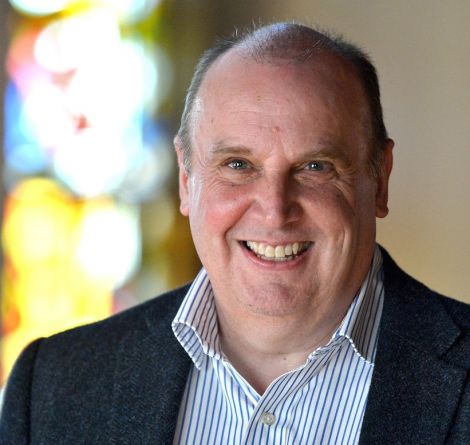News / SIC may need to think ‘out of the box’ to encourage people to work in isles
THE CHAIRMAN of Shetland Islands Council’s education and families committee says the local authority may need to start looking at more “imaginative or out of the box” ways to recruit and retain school and social care staff in the isles.
Concerns over recruitment were raised at a meeting of the committee on Monday morning amid a warning that using agency staff to temporarily fill posts was a main reason behind a projected overspend of nearly £700,000 this financial year.
Speaking after the meeting, chairman George Smith said staffing is an issue “not just for this committee but for across the council, where we struggle perhaps to get folk to be able to take up posts in Shetland, and maybe we need to look at more imaginative or out of the box ways of trying to recruit and then retain staff that are coming into Shetland”.
Director of children’s services Helen Budge said in response to a question from councillor Catherine Hughson that there are a number of avenues the council can look into when trying to attract more staff to Shetland, including having a presence again at teaching colleges.
Lerwick councillor Peter Campbell questioned whether subject choices could be affected if certain teaching jobs become hard to fill.
“We are not at the stage where we are needing to stop anything,” Budge responded – but she suggested more specialist areas, like technical and home economics, will continue to be monitored.
Martin Tregonning, meanwhile, suggested the council could start “taking a leaf out of the private sector” and more closely examine why probation teachers have not stayed in Shetland, for example.
Committee vice-chairman Theo Smith said having suitable accommodation was a “huge problem” when it came to getting people to stay in the isles.
“We as a council seem unable to address that,” he admitted.
Become a member of Shetland News
Lerwick north councillor John Fraser followed up by calling on the council’s main players to look further into the housing issue, particularly when it comes to filling key posts.
Council leader Steven Coutts said housing was a “crucial point”, but he also pointed to the Promote Shetland contract in how it can be used to draw people to the isles.
South mainland councillor Robbie McGregor, meanwhile, urged every member of the committee to promote Shetland themselves to other people.
“Everybody should speak of the virtues of life on Shetland,” he said.
George Smith said after the meeting that one option could be to offer incentives to teachers to work in the isles, as some other local authorities do.
“We seem to spend a fair amount of money in some parts of the council on agency staff, and I think that’s also an issue for NHS Shetland, for example,” he said.
“Housing is another issue – can we get adequate housing that folk feel that they can make that move here to Shetland? So there’s a number of things can be looked at, but it is becoming harder and harder to encourage folk to make that move across the border up to Shetland.
“We’ve got a ten year plan in the community partnership to grow our working age population, so we’ve got to find these people from somewhere. Hopefully a number of those will be folk that are already here in Shetland that decide they want to live and work and stay in Shetland, but we’ve definitely got to get folk moving to Shetland.
“So if we canna provide them with accommodation, if we canna provide them with a salary that they see as being attractive, then it will become an issue.”
Become a member of Shetland News
Shetland News is asking its readers to consider paying for membership to get additional perks:
- Removal of third-party ads;
- Bookmark posts to read later;
- Exclusive curated weekly newsletter;
- Hide membership messages;
- Comments open for discussion.
If you appreciate what we do and feel strongly about impartial local journalism, then please become a member of Shetland News by either making a single payment, or setting up a monthly, quarterly or yearly subscription.






























































